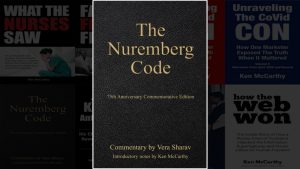Election Fraud in the 1997
49er Stadium Election:
14 Points of Concern
Posted – June 16, 1997
49er Stadium Election:
14 Points of Concern
Posted – June 16, 1997
“I don’t lose elections because I steal them”
“Yes,” campaign manager Jack Davis speaking to “Yes” campaign workers a few weeks before the June 3rd election when the proposition was trailing far in the polls.
In addition to the gross impropriety of a mayor engaging in a two-month, full-time advocacy program on behalf of a private client and using city funds, resources, and personnel to do so, this website contains evidence and eyewitness accounts of the following (this is only a partial list of complaints):
1. “Special” polling places opened three days before the election with funds from the Housing Authority. The special polling places are reported to have voted 90% “Yes” to give $100,000,000 to a private business when the city claims it has no money to provide adequate bus service or clean up serious environmental problems in the same area where the polls were placed.
2. Members of Mayor Brown’s political staff stationed in the election office two months before the election. Steve Nelson, Brown appointee, in control of the vote-counting process.
3. The District Attorney’s office attempted to block the release of the photo of the “Yes” precinct captain arrested on two felony counts of voter fraud. Only the pointed threat of press exposure about their refusal succeeded in persuading them to release it.
4. Young men with official-looking “poll observer – vote yes on D & F” badges stationed inside polling places in control of the ballot boxes with no interference or objection from poll workers.
5. Polling places in areas where polls indicated opposition to the stadium were closed, closed early or moved without notice or proper signs.
6. Electioneering in the form of signs and advocates permitted within poll boundaries.
7. “Poll observers” asking people how they intended to vote and then asking the names and addresses of people who refused to answer or who indicated they were voting “No.”
8. Poll workers violating the privacy of the secret ballot.
9. Sample ballots and voters’ handbooks were not delivered to districts where polls indicated opposition to the stadium. Highly unusual ballot design.
10. Extremely late delivery of over 100 ballot boxes which turned out to have an abundance of “Yes” votes in contradiction to the trend of the election. Delayed count attributed to “wet ballots” that needed to be “dried in a microwave oven.”
11. Reports that at some polling places men in vans ordered poll workers to surrender ballot boxes instead of the normal procedure of having the poll managers personally deliver boxes to the elections office or designated police station.
12. Director of Elections Germaine Wong has closed public access to the voter registration files and the records from the June 3, 1997 election. (Note: reopened July 10, 1997. Seven working days before the deadline to file a legal challenge to the election.)
13. Investigators claim they found 15 to 30 suspicious signatures per polling book (over 500 polling places were set up for this election.) These were detected during a rushed examination under unfavorable conditions imposed by the mayor’s office. When speaking to the press, the Register of Voters changed the number and claimed only seven suspicious signatures total had been uncovered.
14. The Election Department, District Attorney, and City Attorney have made no visible attempt to investigate these complaints.
Immediate concerns: 1) The voting records must be preserved and investigators must be permitted unlimited access to them. The law permits them to be “stored” after 30 days. 2) Poll workers and poll observers in polling places about which complaints have been made should be interviewed by investigators and offered immunity for their testimony.



